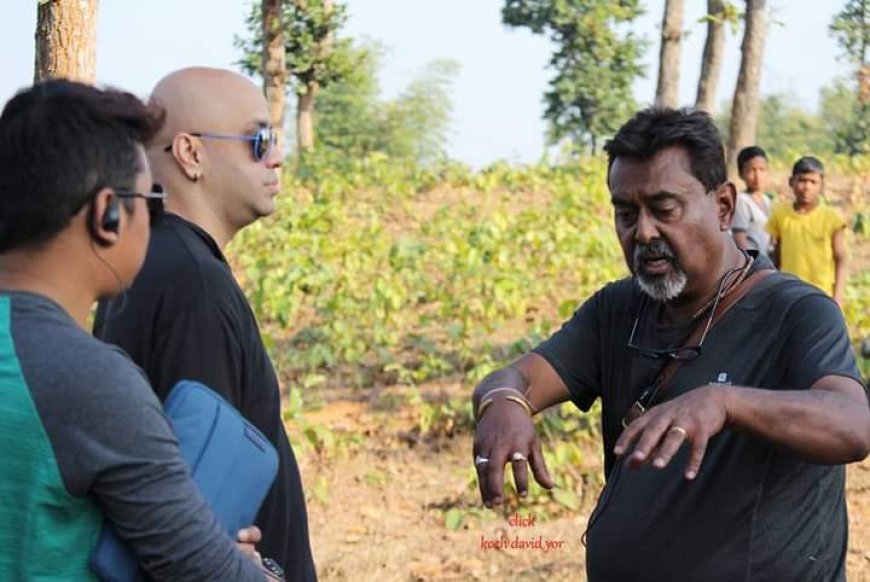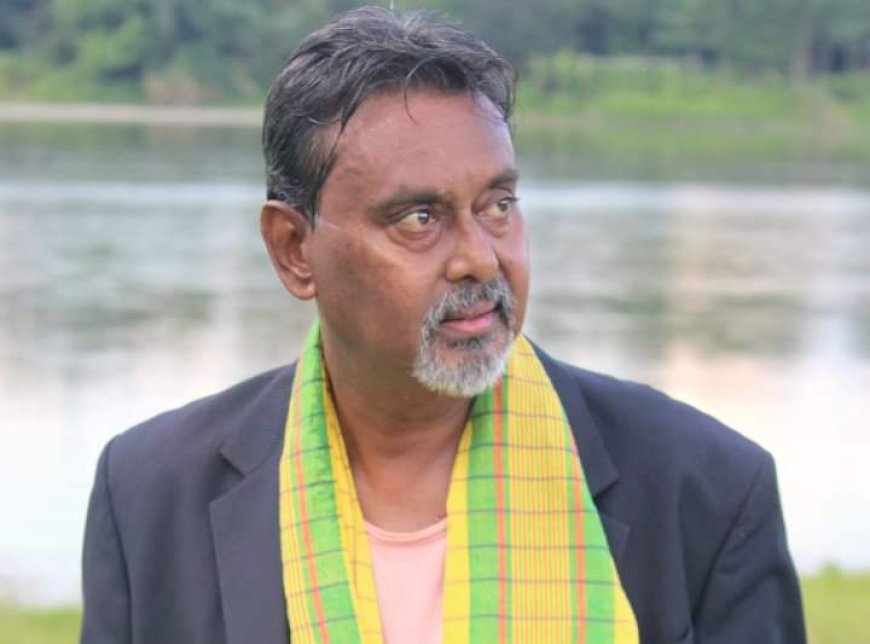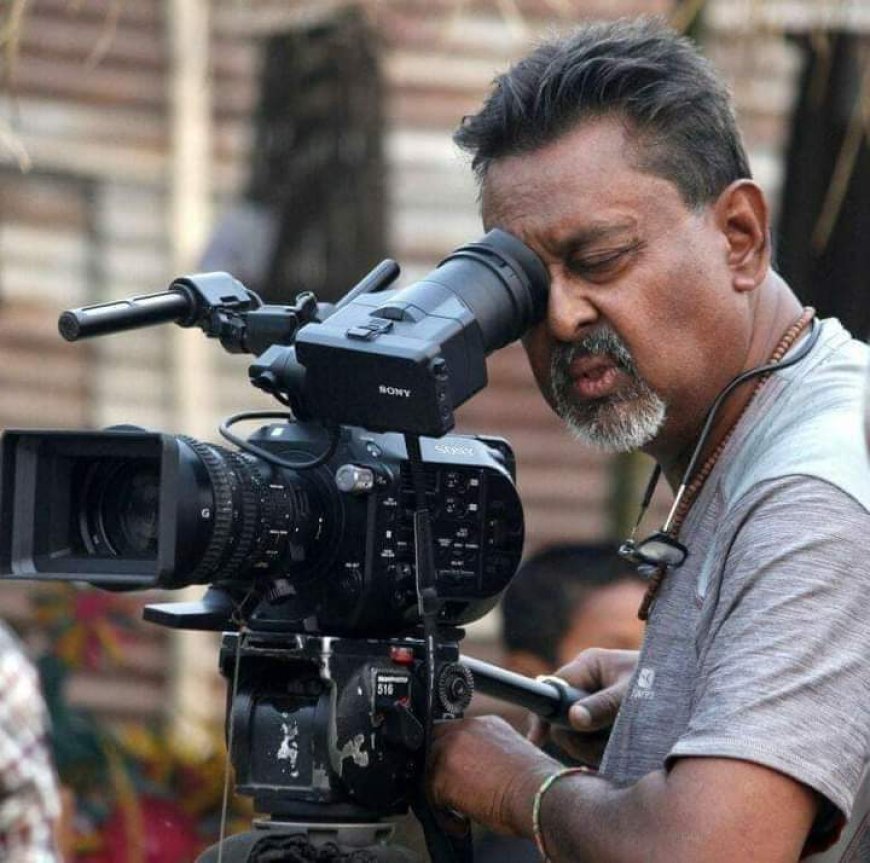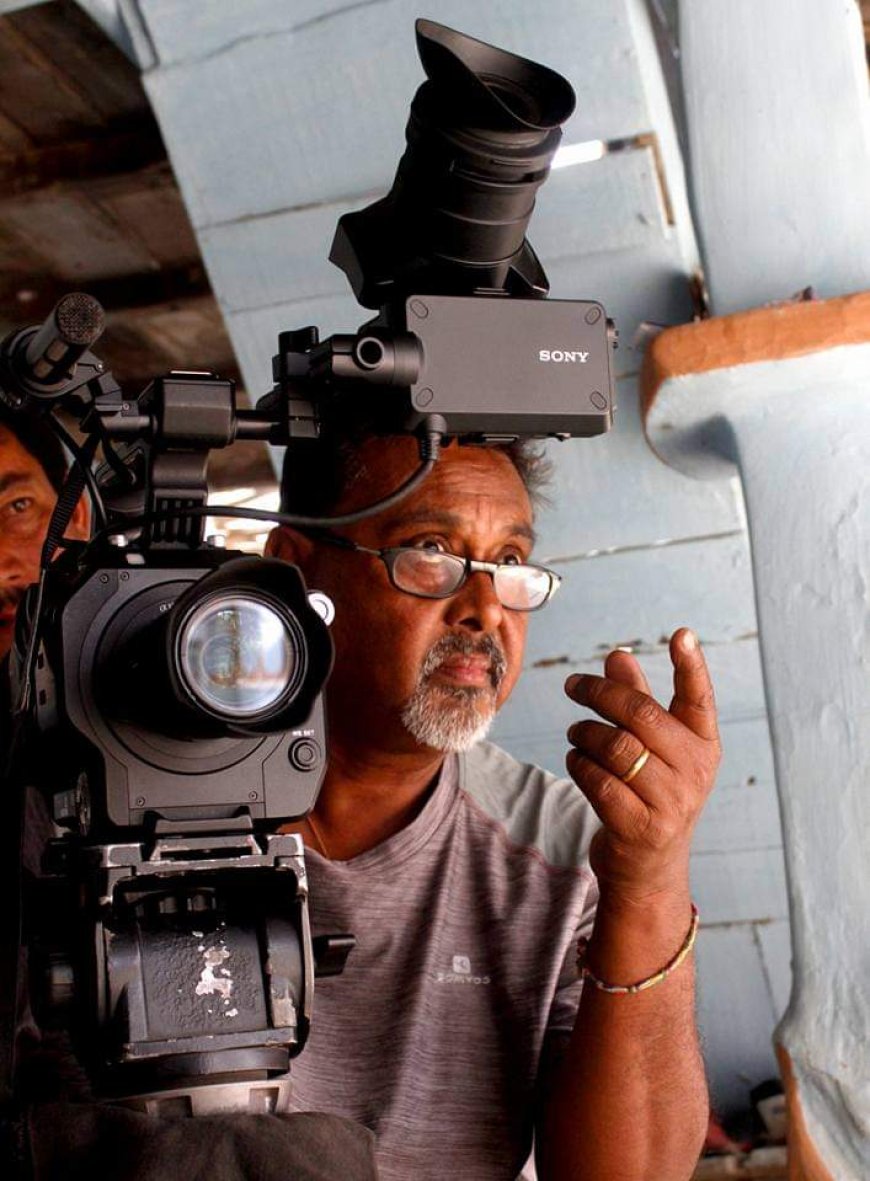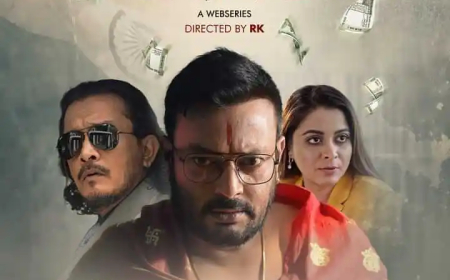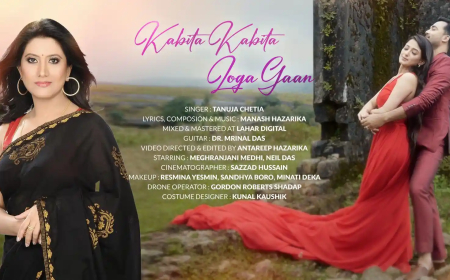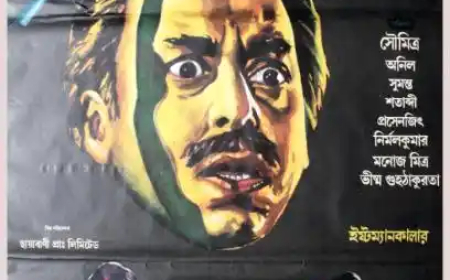Leaving for another kingdom : Indrajit Narayan Dev
Prantik Deka reflects on the commemoration of his accomplishments on the passing of Indrajit Narayan Dev, a prolific filmmaker and descendant of the Koch Dynasty, who left a legacy of cultural preservation and ambition.
I was profoundly shocked when the tragic news of the demise of our beloved Indrajit Narayan Dev reached me in the morning hours of 14th April, 2024.
It was perhaps in 2008 or 2009 that I serendipitously crossed paths with Indrajit Narayan Dev, fondly known as Bubuda in the circles. Actually, it was a phone call from Bubuda who told me about his project – a Nagamese short film. And I was entrusted with the job of writing the censor script of that film that Bubuda had produced and videographed. Soon, I found myself in the serene retreat of the sprawling Ranibagan estate located in Beltola Tiniali, within the bustling city. It was a pleasant sight to see an old cottage standing amidst the verdant greenery as a timeless reminder of an era gone by. It's a place used as an office cum editing studio. A dazzling collection of old photographs, leaflets, posters and artifacts from movies and images of various celebrities adorned the house, serving to preserve memory as well as holding the past. Bubuda dwelled with his family atop the ancestral bungalow – the 'Little Hillock', nestled on the crest of a small hill that overlooks the estate of Ranibagan.
I found Bubuda to be very friendly, motivated and uncompromising at the same time. It was a pleasure to be able to complete this work. We met very few times after this project but remained in touch over the phone.
I went on to do publicity works in some of his other productions, but they were far and few in between.
An eminent personality from the film and television industry and a direct descendant of the Koch Dynasty, Indrajit Narayan Dev, however, preferred to live an ordinary life and shunned publicity of any kind despite hailing from a royal family, and being endowed with so much wealth. And it's that very quality that made him imminently relatable. His contributions to various causes are well-known.
Over the years, he played an active role in encapsulating and chronicling the historical and archival records of the Koch Dynasty through various documentaries, in the process, shedding some new light, which authentically reflect our past history, and are viewed as a great reservoir of research material for scholars, students, and research library. Bubuda strongly felt that such initiatives will not only inspire and educate, but also instill a sense of respect in the new generation to look at their history with a sense of avowed pride. He was deeply associated with a number of Koch-Rajbongshi associations, which also occupied much of his time.
In 2017, I was entrusted with the job of looking after the publicity work of his ambitious project, a music video entitled 'Na Jujor Ronuwa: The Rebirth of the Koches', which highlights the rich and vibrant history and culture of the Koch community. Produced and directed by Indrajit Narayan Dev, the music video depicts the ancient edifices and the characteristics of the Koch Dynasty in places like Cooch Behar, Madhupur, Jalpaiguri, Dinhatta, bordering Bangladesh, banks of the Kosi river in Nepal, Chikanjhar forests, bordering Bhutan, some places in Jharkand, parts of Assam including Kokrajhar, Dhubri, Goalpara, Bongaigaon, Gouripur and Majuli. Relics are often viewed as the purveyors of culture, the concrete evidence of the long history and cultural traditions of a state and a people. This music video depicts the decrepit state of these relics, which appear more as ruins of architectural grandeur, a mere shadow of their former glory, which was truly an eye-opener. Featuring traditional Koch Rajbongshi folk music and culture, the track written by noted lyricist Ibsonlal Barua, has been rendered by popular singer Joy Barua, who has also composed the song.
Bubuda also asked me to do some publicity work of the 15-minute-long documentary – 'Last of the Tattooed Head Hunters', directed by his better-half Vikeyeno Zao and produced by himself, under the banner of Hawksbill Productions, which projected the ethnic Naga group Konyaks, their traditions and ancient customs and their plight in the present times. The film was screened in the Short Film Corner of the prestigious Cannes Film Festival in 2010.
And astonishingly, within a space of just 12 months, Bubuda's documentary project on the pathetic conditions of wildlife in Assam, helmed by Vikeyeno Zao – 'This Land We Call Our Home’, was selected to be screened at the 64th Cannes Film Festival in 2011. He was the film's producer, cinematographer and a co-director.
Later, I got involved as a publicist in another project, and this time, a mega TV series on an adventure reality game show, directed by Vikeyeno Zao, entitled ‘Mountain Warriors’. Bubuda was involved as an executive producer in the series, which was shot in Ranibagan.
It has to be mentioned that since 1979, Indrajit Narayan Dev had assisted his father, eminent film director late Dwijendra Narayan Dev and his mother late Suprabha Devi in several movie productions. It may be mentioned that Bubuda's father Dwijendra Narayan Dev was the creator of many Assamese super hit movies such as 'Jog Biyog' (1970), 'Toramai' (1972), 'Moromi' (1976), 'Rangdhali' (1979), etc. He was a movie producer with a lot of foresight and creativity. His mother Suprabha Devi became the first Assamese woman film director with 'Nayanmoni' (1984), for which she was conferred with the prestigious Shilpi Diwas Award in 1985.
Open-minded and eager to learn about every aspect of filmmaking, Indrajit Narayan Dev was quite active as a film technician and assistant director, having worked with several well-known directors in Assamese movies.
In 1981, Indrajit Narayan Dev established Dwijendra Chalachitra Pratisthan, an independent film production company, and diverted his attention entirely and exclusively to filmmaking. It may be recalled that Indrajit Narayan Dev had directed the critically acclaimed documentary film ‘Ser Alang’ (The Golden Juice), which won the Rajat Kamal National Award in 1990. Produced by the Department of Agriculture (Horticulture), the film was cited for its sensitive handling of motivational messages through the medium of cinema. The film depicted the abolition of jhum cultivation, an age-old slash-and-burn agriculture practiced on the hill slopes, and adaptation of settled and terraced cultivation for permanent agricultural methods. He also closely interacted with the Karbi community during the making of the film. His other exceptional works as a documentary filmmaker include 'Purbasmriti', 'Musical Instruments of the Hill Tribe of Assam', 'Robin Banerjee - The Man And His Works', among others. Indrajit Narayan Dev traveled extensively throughout the North-East region for his documentaries, short films and serials, which are intrinsically related to the issues of environment, nature, wild life, anthropology, etc. He has traversed many untouched, rugged terrains, dealing with different indigenous communities dwelling along the Eastern Himalayan ranges bordering Tibet and the Northeastern states of Arunachal Pradesh, Assam and Nagaland. Bubuda had an unwavering love for the Himalayas and an insatiable thirst for adventure. He had undertaken several trekking expeditions in Nepal and to the remote and the precarious high-altitude regions in the Eastern Himalayas of Arunachal Pradesh. He also undertook an expedition to the Mount Kailash and Lake Manasarovar in Tibet in search of the source of the river Brahmaputra, which was quite a challenging endeavour.
But his dream project for years had been the big-budgeted and the much ambitious Indo-British co-production 'Lake of No Return', set against the backdrop of the Stilwell Road of the 1940s, but it never got off the ground, even though he was determined to revive it. Interestingly, the movie's title/story was even registered with EIMPA at that time. I sincerely hope that somebody fulfills his dream one day.
Indeed, the king has left for another kingdom!
What's Your Reaction?





















































